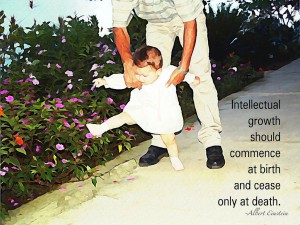 My love for teaching began when I worked as an English language instructor in Taiwan. At first, I did not see the act of teaching as anything else other than something done out of necessity to support myself. One day, as one of my beginning leveled students tried to speak to me in English, I was suddenly struck by a realization of the purpose for me to be a language instructor. As a language instructor, I needed to help students gain the skills they need to voice their opinions and communicate with others so that they will be able to interact more fully with the rest of the world. This led to my return to further my studies in the field of Education at UBC.
My love for teaching began when I worked as an English language instructor in Taiwan. At first, I did not see the act of teaching as anything else other than something done out of necessity to support myself. One day, as one of my beginning leveled students tried to speak to me in English, I was suddenly struck by a realization of the purpose for me to be a language instructor. As a language instructor, I needed to help students gain the skills they need to voice their opinions and communicate with others so that they will be able to interact more fully with the rest of the world. This led to my return to further my studies in the field of Education at UBC.
From my trainings at UBC as an elementary teacher and an ESL specialist, I have come to realize that the success of learning comes not in the ability to recall information but rather in the application of knowledge into everyday situations to resolve and prevent the various challenges that might occur. By designing learning activities based on pedagogical approaches such as Constructivism and Problem-Based Learning, students will have opportunities to develop the skills they need to not only become critical thinkers who can collaborate with one another on learning through reflection and scaffolding but also see the intrinsic value for learning by, for example, helping others learn.
My experience in the Master of Educational Technology program as allowed me to acquire the knowledge and skills necessary to conduct educational research, design technology supported learning environments, apply learning theories such as constructivism and media literacy to instruction, and plan and manage learning technologies in various educational settings. My belief is that technology provides students with the affordances they need to gain the skills and competencies (Bates, 2009) required for success in the 21st century.
Ultimately, I believe that an educator’s role is to support student learning by helping students equip themselves with the skills and abilities they need to navigate outside of their own comfort zones and become unafraid of making and learning from mistakes. As the students acquire the affordances to overcome the challenges they discover, they will build the confidence they need to foster the motivation for learning for the rest of their lives.
Reference
Bates, T. (2009, June 24). E-learning skills and competences. Retrieved from http://www.tonybates.ca/2009/06/24/e-learning-and-21st-century-skills-and-competences/